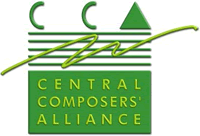|
CCA Composer of the Month – May 2013
CCA Composer of the Month – Peter J. Witchell
Your featured Compositions of the Month:
1. “BUZZ BUZZ”, 2007 / 2. Finale of “SUITE FOR WIND QUARTET”, 1971
Instrumental and/or vocal resources used:
1. Computer / 2. Flute, Two Clarinets & Bassoon
Performers on your recording – if relevant:
Myself! / Students at the Royal Academy of Music
Of the work(s) you have selected for the Composer of the Month feature, what was the source/inspiration/commission which set this piece or these pieces in motion?
“BUZZ BUZZ”: Composers have musical ideas buzzing about in the brain – imagine if a busy bee were trapped inside as well.
What would be a good programme note for this work which explains the structure, use of melody and harmony and any technical points related to the performers?
More recently I have returned to the style of the ‘70s Wind Quartet – my more pensive ‘Shostakovichian’ stuff comes in between – must be something to do with retiring! My most extended computer composition is “The Ugly Duckling” – it was a thrill to attend a performance of the 50-minute ballet attended by 1200 New York City schoolchildren.
When did you first start composing and what was your first piece?
10 years old – not written down, but played at a select concert in my Headmaster’s drawing room – “Socks the Dog”, named after his lively pet – the music was very like "There’s no business like show business”!
Who was it that first encouraged you to develop your interest in composing and how did they help?
At Oundle, Christopher Robinson (in his first job) encouraged me to write things down, and to make arrangments for house concerts – he was my house tutor as well as piano teacher. Also at the Royal Academy of Music, my wonderful piano teacher, Harry Isaacs, let me put on concerts of my music at his West Hampstead studio. My harmony teacher, Dr Clifford-Smith, on the 5th floor, was also very encouraging unlike some of the big-wigs at the R.A.M. who didn’t want to know.
Who do you consider your greatest inspirations in terms of the major composers and which of their works has influenced you the most and why?
Anyone melodic – Dvorák has been a big source of inspiration.
How would you describe your style to someone who has never heard your music before?
A cross between Shostakovich and Eric Coates! Depends on the genre and intended audience.
What do you feel is original in your music?
I was writing tunes when it was unfashionable. At the R.A.M. the composition students were putting rubber bands in the piano and slamming the lid – I wonder what has happened to them since?!
How do you work? What methods of creativity and work ethic do you have? Do you solely use musical technology or do paper and pencil still form a part of your process?
Mostly the computer these days, but for most of my life it’s been good old ‘paper and pencil’ and experimenting at the piano. I used to write out all the orchestral parts very neatly – players are always more receptive to your music if they can see what is intended!
What project(s) are you currently working on?
I’ve just finished a cello/piano sonata for friends in the Shetlands and am working on a suite for viola/cello for more local friends.
To finish, who or what is your favourite:
Genre of Music?
Orchestral, particularly symphonies – Beethoven, Mahler, Rachmaninov etc.
Composition?
“Sweeney Todd” – I think that Sondheim is one of the truly great composers of the late C20th.
Instrumentalist?
Murray Perahia [piano] & Joshua Bell [violin]
Conductor?
Bernard Haitink – one of the finest musicians on the planet.
Orchestra?
The Royal Concertgebouw Orchestra - peerless
Concert Venue?
In this country, Symphony Hall, Birmingham.
Piece of Music *
IMPOSSIBLE – this is worse than “Desert Island Discs”!
* by another composer
P.S. My orchestral piece, Rutlandia, was revived last year by the Rutland Sinfonia for their 35th Anniversary Concert. The programme compiler asked me to provide details about the eight minute piece. I replied that, apart from the sentence I’d given him, I couldn’t. “It’s all in the music”, I said, so he filled the page with photos of Rutland! I find it very difficult to talk about my music. Hours of pretentious lectures at the R.A.M. rather put me off too much waffle!




